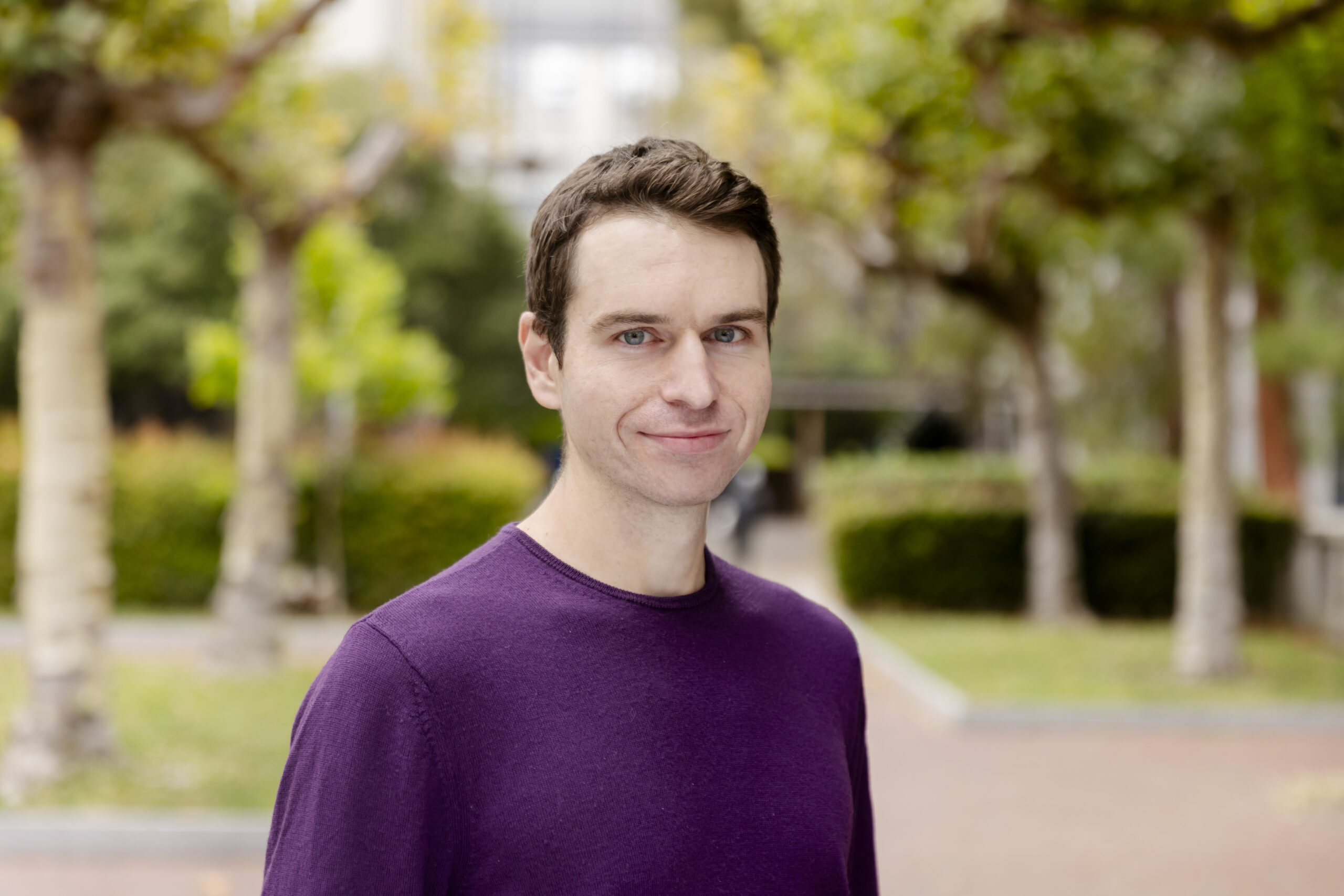
Robert Saxton
ChemistryMolecular and Cell BiologyRobert Saxton is an Assistant Professor in the Departments of Molecular and Cell Biology and Chemistry.
Project Description
Leveraging AI-Based De Novo Protein Design to Overcome Leptin-Resistant Obesity
Obesity impact over 40% of adults and 20% of children in the US and costs the healthcare system billions of dollars annually. While recent GLP-1-based therapies have shown impressive results in promoting weight loss, concerns around side-effects and other limitations suggest that new modalities are still needed. Leptin, a hormone regulating body weight and metabolism, offers potential, but leptin resistance complicates its effectiveness. This proposal aims to use AI-guided protein design to create targeted leptin receptor biased agonists, in order to overcome leptin resistance and promote safe and sustained weight loss and metabolic health.
Robert Saxton’s Story
Could Targeting Leptin be a New Breakthrough in Obesity Treatment? A Bakar Fellows Says Yes
September 20, 2024
By Niki Borghei
Every day, millions of people around the world struggle with obesity, a condition affecting 650 million individuals and contributing to a host of chronic diseases.
While new GLP-1 therapies—Ozempic being a famous example—have emerged as powerful tools in the weight loss arsenal, they often come with a caveat: uncomfortable side effects like nausea and gastrointestinal distress can complicate the journey to health. Now, researchers are setting their sights on an intriguing alternative—leptin.
One such researcher is Robert Saxton, Assistant Professor of Immunology and Molecular Medicine at UC Berkeley. By targeting this hormone, he hopes to unlock a pathway to safe and effective weight loss, offering a promising complement to existing treatments. He hopes this innovative approach could redefine obesity management, providing new solutions for those eager to transform their lives.
Q: How does your solution involving leptin work?
A: Our body uses a hormone called leptin to regulate weight and metabolism. Normally, when leptin levels rise, our brain responds by telling us to eat less and burn more calories. But in people with obesity, the brain stops responding to leptin, a condition called leptin resistance. This is why existing leptin-based treatments don’t work for most people. We are using advanced AI-based protein design techniques to develop a new version of leptin that will make the brain respond again, potentially allowing people to lose weight without the side effects seen with current treatments.
Q: How did you become interested in studying leptin?
A: My interest stems from the growing global obesity epidemic and the need for more effective treatments. Despite the prevalence of obesity and the success of some current treatments, their limitations and side effects remain a significant barrier to patient care. Leptin biology is particularly fascinating because of its central role in body fat regulation. The idea that we could bypass leptin resistance and create a better therapeutic option is incredibly motivating.
Q: What about becoming an entrepreneur? How did you decide to make that transition from academia?
A: The transition from scientific discovery to real-world application has always motivated me. Research is the foundation, but without commercialization, many scientific advancements would remain in the lab. Entrepreneurship offers the opportunity to bring transformative treatments to the people who need them most.
Q: How is the Bakar Fellows Program supporting you?
A: The Bakar Spark fund will be instrumental in moving our project from in vitro proof-of-concept to pre-clinical testing. Specifically, we’ll use it to further refine our leptin analog designs, validate their efficacy in cell-based models, and conduct in vivo studies using models of diet-induced obesity. This funding will help us gather the necessary proof of concept to prepare for clinical studies and potentially attract further investment.
Q: It sounds like there’s a huge need for this kind of treatment. When can we expect to see the initial application of your research?
A: We expect to see the first tangible results within the next few years, starting with successful in vivo testing. If the pre-clinical data is strong, we hope to move into early-stage clinical trials within 3-5 years.